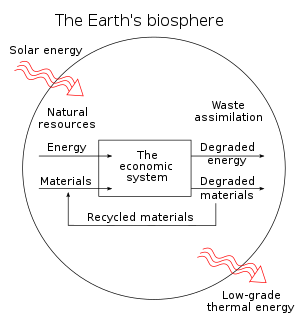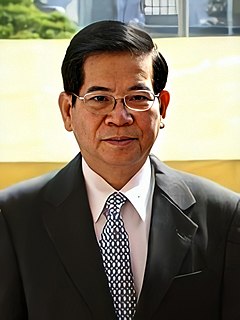A Quote by Herman E. Daly
The problem with the World Bank has to do with development - the spreading of Western over-consumption worldwide.
Related Quotes
Overpopulation is the problem of the third and fourth World; over-consumption is the problem of the West. The average American child this year will consume as much of the world's resources as twenty children born in India. Deliberate and calculated waste is the central aspect of the American economy. We over-eat, over-buy, and over-built, spewing out our toxic wastes upon the earth and into the air.
If the level and amount of consumption and waste of the western rich countries ever reaches the poor countries, it will mean the end of humanity. The big world corporations are busy doing it...The production, selling, consumption, accumulation, wastes' and advertisement explosions in the western rich countries and the continued population explosion in the poor countries will turn into major catastrophes.
At the beginning of the 20th century, there were less than 3 billion people on the earth, closer to 2 billion. By all measures that we can come up with right now,. with the lifestyle and consumption pattern of the Western industrial civilization, we can probably sustain about 2 billion people on this earth. We already have over 6 billion. China and India are aspiring to come on as industrial nations, aspiring to the lifestyle of the Western world, and it simply can't happen.
Car prices play a large role in calculating PPPs even while they play no role whatsoever in the consumption or consumption needs of the poor. And the prices of rice, bread and beans play a small role in calculating PPPs even though they play a huge role in meeting the consumption needs of the poor. So the World Bank's method of comparing and converting everything at general purchasing power parities into US dollars is highly distorting within an exercise whose purpose it is to determine whether households are or are not capable of meeting their basic consumption needs.
One of the greatest accomplishments of Western civilization is the development of the scientific method and the scientific disposition, which entail the development of falsifiable hypotheses about the world and the unwillingness to take unverified and untheorized claims about the world as truth, simply because someone states that they are true.
The governments and the communist parties in Vietnam and China are doing their best to develop their local economies. But the rise of countries in Asia is not in opposition to development and affluence in Western nations. It is a mutually beneficial development. The interests of Western investors are protected in our country. Both we and the West benefit from this in equal measure.





































